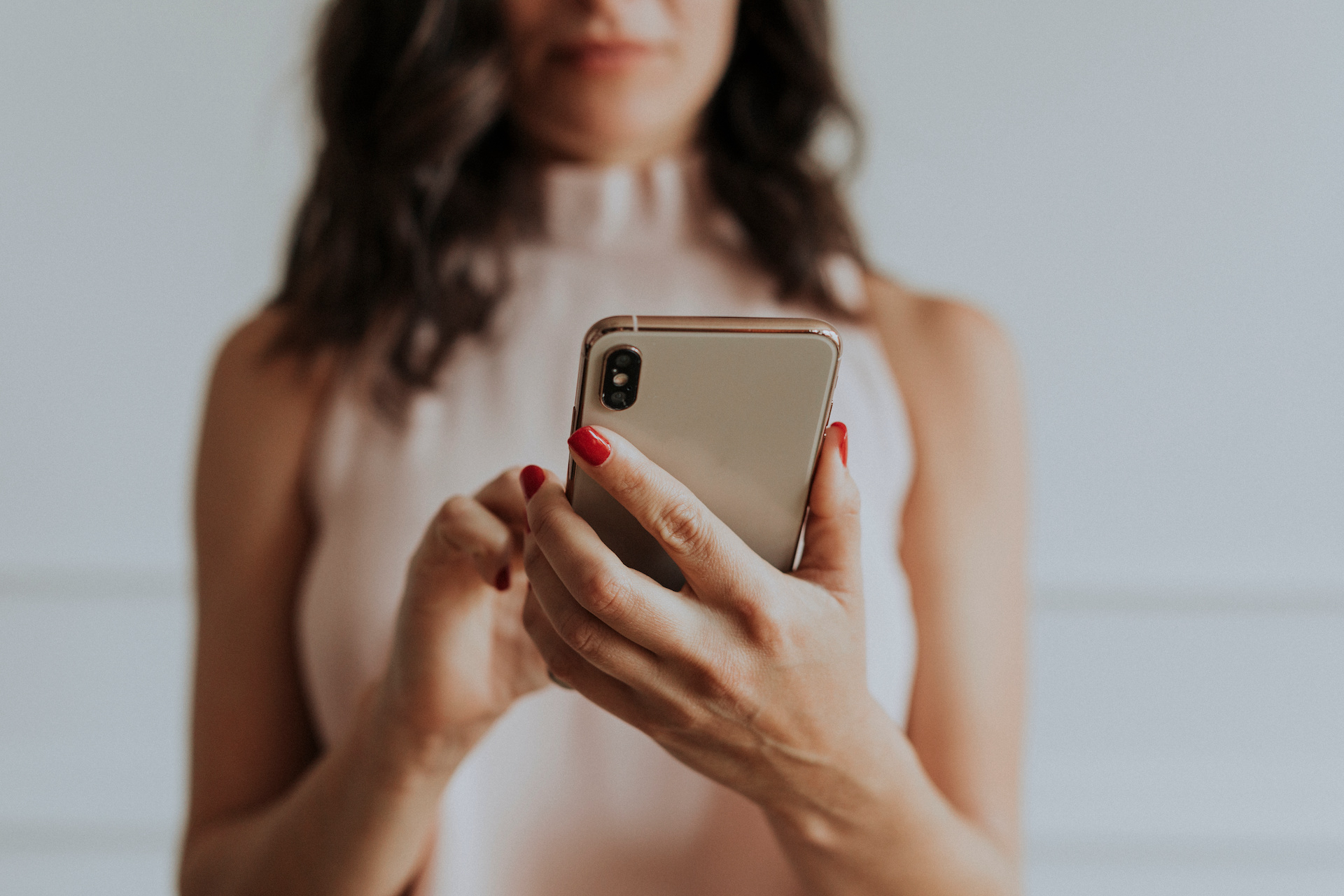As a health centre with a focus on treatment and recovery, we often encounter individuals who are looking to make better choices—i.e. choices that work better for them. In this article, we’ll be talking about how you can take responsibility for your digital well-being by considering healthy habits for phone use.
Recognizing The Role Of Smartphones In Our Lives
Phones are an integral part of our daily lives. We use them for doing business, reading content, watching videos, listening to podcasts, playing games, connecting with friends, tracking our exercise routine, and so on. It’s estimated that approximately 90% of Canadians have a smartphone, with the average user checking their phone 58 times daily. Heck, with phones claiming a larger share of media time each year, you might be reading this on your phone right now!
Given the foothold that these little rectangular gadgets have gained in our lives, chucking our phones into the ocean is probably not a realistic approach. But having an awareness of their role in our lives and making intentional choices around how we use them can help us avoid problematic smartphone use that borders on dependence and addiction.
Without further ado, here are 7 tips for making healthy choices around smartphone use as a way to improve your quality of life.
1. Be Conscious Of Your Screen Time
The first step to improving your relationship with your phone is to take stock of how much time you actually spend on it. Whether you choose to track this formally, or just generally bring more of your awareness to it, spending a day or a week being conscious of your phone use can be enlightening and can help you resolve to use your phone more intentionally.
If you’re finding that you’re spending more time than you want on specific apps (e.g. Facebook), you can always use an app or your settings to reduce the time you spend on it. On several occasions, we’ve had clients make arrangements for staff to keep their devices while they’re in treatment or to turn them in at night. These are both great examples of clients taking their own initiative to have healthier, more intentional relationships with their devices.
2. Watch Your Posture
Smartphone use is associated with neck, shoulders, and thumbs pain. Along with various identified postural problems and even injury to ligaments and to the spine. Being conscious of your posture can help to an extent, but the most effective variable seems to be reduced time spent on your phone.
Using hands-free tools such as text-to-speech or your phone’s digital assistant can reduce the toll your long-term phone use takes on your body, as can using an ergonomic phone grip or a phone stand.
3. Be Conscious Of Blue Light
Beyond negatively affecting our posture, phones can also confuse our body’s innate sense of day and night. The blue-spectrum light that draws us to screens like moths to a flame can actually affect our circadian rhythms and make it harder to get a good night’s sleep.
Sleep is particularly important during recovery, so being proactive about this is important in addictions treatment and recovery. Some strategies to help deal with this include the use of anti-blue-light glasses, the use of night-time display settings on your phone settings or apps, and the conscious choice to put away your phone before bed.
4. Turn Off Unwanted Notifications
*Ding* — It’s an ad for an exercise bike.
*Ding* — Wordle has been updated to a new version.
Our devices should be helping us live our lives, not interrupting our attention constantly with unimportant and unwelcome distractions. Did you know you can turn notifications off for specific things? Individual apps can be given specific notification permissions, so you’re only receiving the things you want to receive.
Most systems also have a Do Not Disturb mode that can block annoying notifications while notifying you of the things that are allowed and important to you, sparing you from a million dings a day.
5. Avoid Doom-Scrolling
Doom-scrolling is “the act of spending an excessive amount of screen time devoted to the absorption of negative news.” The global pandemic made it easy to spend hours scrolling and biting our nails.
With the pandemic seemingly on the wane, we can still find lots to fret over in the Russian/Ukrainian conflict’s potential to escalate into nuclear war or any of the other ways that society could collapse like a house of cards. But guess what, scrolling yourself into a stupor won’t help. Maybe it’s time to step back from your phone for a little bit and go for a hike.

6. Take Physical Breaks From Your Phone
When’s the last time you were physically away from your phone? Obviously, it’s not feasible for everyone to be away from their phones for undetermined amounts of time, myself included. As a Search And Rescue volunteer and as a parent, I recognize the importance of having a phone on me, both from a personal safety perspective and from a response capability perspective.
But maybe I don’t need to be on my phone if I’m going for a quick walk around the block… Maybe I can leave my phone in my jacket when I’m visiting a friend. Maybe I’ll go camping this summer and leave my phone in the car! Heck yeah, I will!
7. Confront Your Need To Check Your Phone
Do you ever get a sudden urge to check your phone? Sure you do, everyone does. But what is that urge about? Do you really need to check your phone? What happens if you don’t check it? Will your head explode? The urge to check your phone can feel very physical and embodied, and choosing to intentionally not act on it can feel extremely uncomfortable.
But discomfort can be a tool for growth and introspection. Being aware of your impulses and compulsions can help you make more intentional decisions, whether related to phone use or other aspects of your life.
In Conclusion
Our phones are not going away anytime soon. By being more intentional about how we use them, we can ensure we are making choices rather than simply continuing with what is familiar. I hope you’ve enjoyed this list of tips about how to use your phone in ways that are more conducive to a better quality of life. If you’ve got more tips you’d like to share with us, please comment below!
At Georgia Strait Women’s Clinic, we support individuals through a holistic approach that recognizes physical, psychological, social and spiritual wellbeing as key aspects of growth and healing. If you or a loved one are struggling with addiction or mental health, give us a call today.
———————–
Ionatan Waisgluss is a writer, educator and tech professional living in the qathet region of British Columbia. He is the founder of SquareByte.ca
Sources:
https://techjury.net/blog/smartphone-usage-statistics/
https://www.statista.com/statistics/472054/smartphone-user-penetration-in-canada
https://www.ncbi.nlm.nih.gov/pmc/articles/PMC4756000/
https://www.merriam-webster.com/words-at-play/doomsurfing-doomscrolling-words-were-watching




